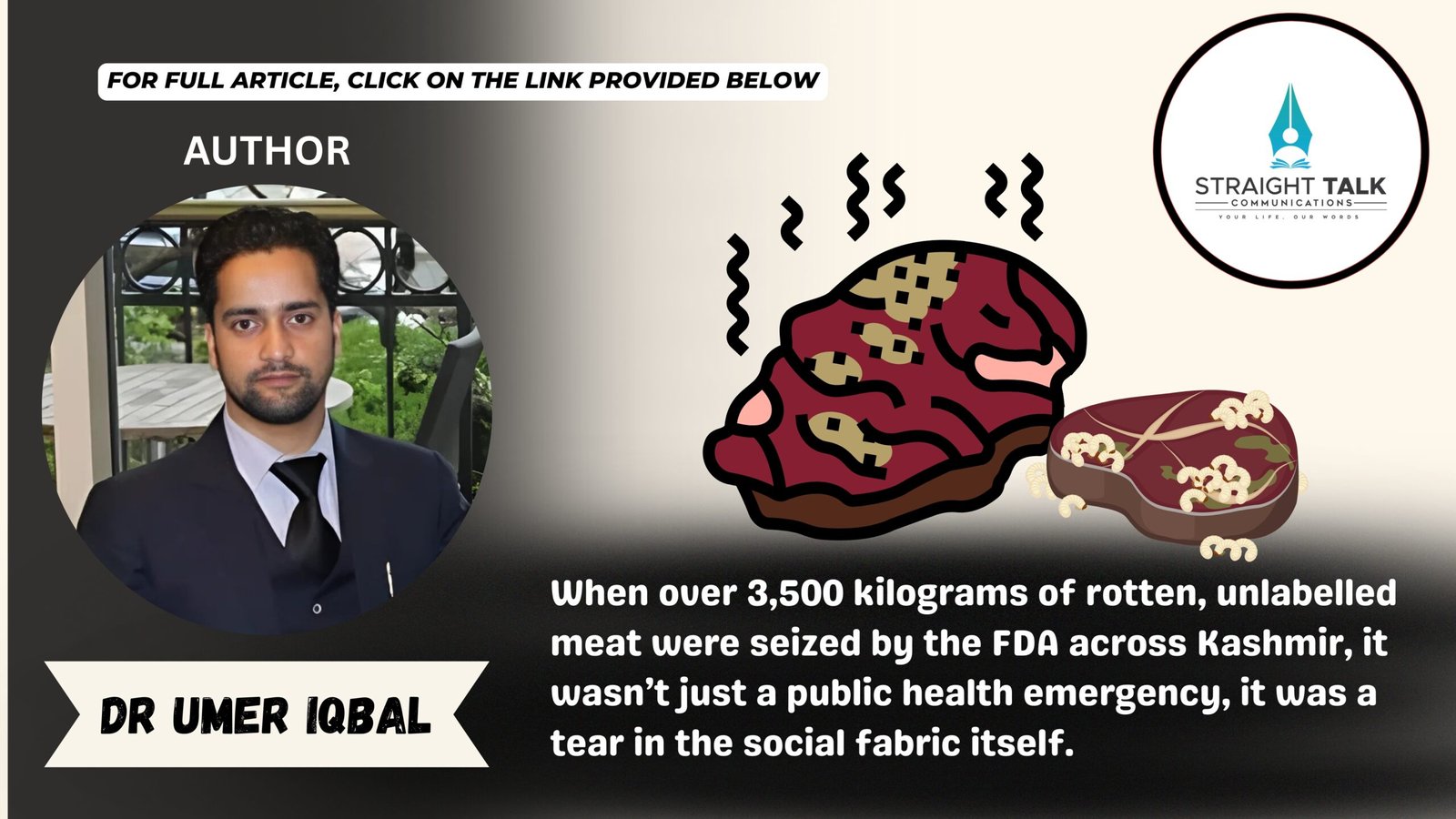Rotten Meat as Moral and Civic Decay in Kashmir

Dr Umer Iqbal
When over 3,500 kilograms of rotten, unlabelled meat were seized by the FDA across Kashmir, it wasn’t just a public health emergency, it was a tear in the social fabric itself. As Mirwaiz termed it, such an act is “a grave betrayal of public trust,” tantamount to zulm, or moral wrong, as it corrupts the basic covenant between provider and community. Here, meat is more than flesh; it is trust, broken.
The rot isn’t confined to cold storages or butcher counters; it extends into regulatory inertia, lapses of governance, and moral indifference. Cases across Srinagar, Zakura, Pulwama, Batamaloo, Anantnag, and beyond reveal a disturbing pattern: 1200 kg of decomposed meat in Zakura, 200 kg destroyed by SMC raids in city markets, and repeated seizures of adulterated or substandard food supplies. It isn’t mere neglect, it is systemic erosion, where the basic duty to protect public health is routinely subverted.
Markets and kitchens are traditionally spaces of nourishment and connection. Yet, when profit eclipses ethics, these spaces become sites of exploitation and threat. The Kashmir Chamber of Commerce noted that such contamination “is not simply a lapse in food safety but a grave public health threat and a breach of basic consumer rights”. The marketplace thus becomes a stage where moral and economic values clash, with human health too often relegated to collateral damage.
In Kashmir, food transcends sustenance, it forms part of identity, ritual, and hospitality. As one commentary aptly observes, “Food is a fundamental right, and trust in that food is a social contract”. When that contract is violated by spoiled meat or fraudulent supply chains, it dissolves the communal trust that binds individuals to society.
This ethical decay demands both diagnosis and redemption. Kashmir’s reality now calls to expose the lobby behind, moral reckoning, echoing people’s demand for accountability and reflection; system reform, from unannounced inspections to real-time testing and transparent prosecutions; renewal of trust, through consistent enforcement, public awareness, and civically engaged citizens.
Rot in Kashmir’s meat supply is a stench that reverberates far beyond stalls, it’s a symbolic and tangible indictment of societal neglect. This decay challenges us to consider what it means to nourish a body, a community, and a conscience. Rebuilding trust demands accountability, fixing the responsibility, courage, honesty, and commitment to the principle that every meal should be an act of compassion, not betrayal.
Dr Umer Iqbal is Editor Straight Talk Communications. He can be mailed at: editor@straight-talk-communications.com







